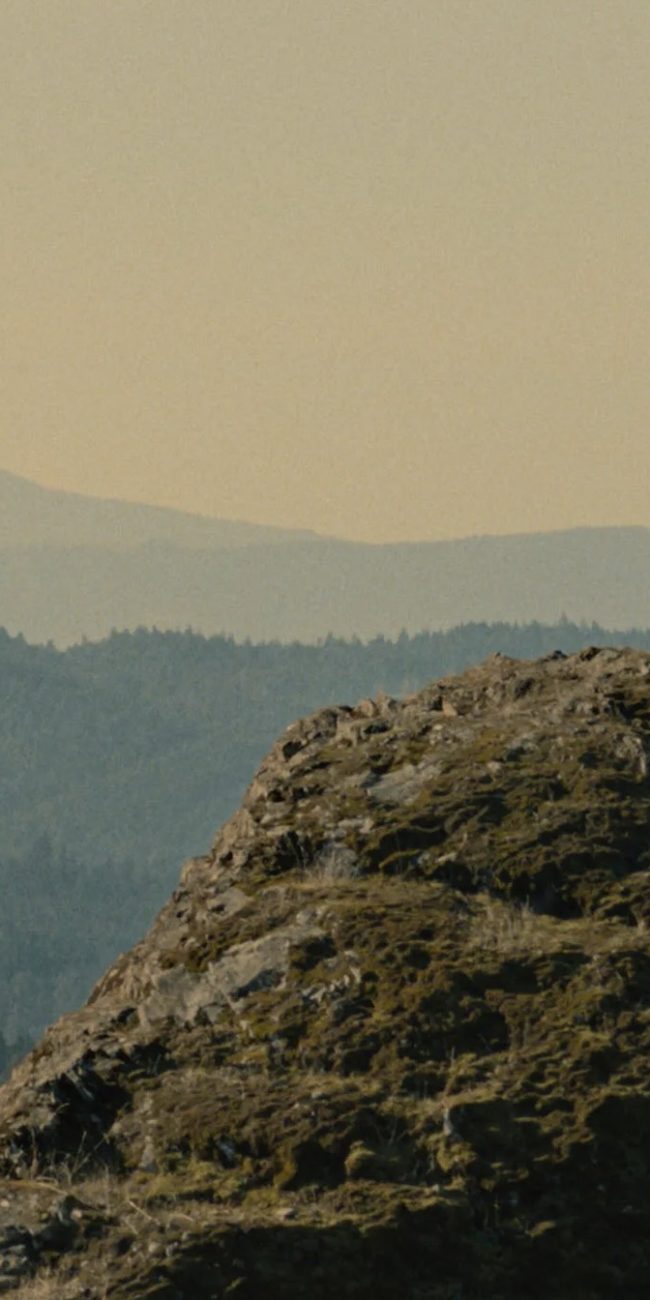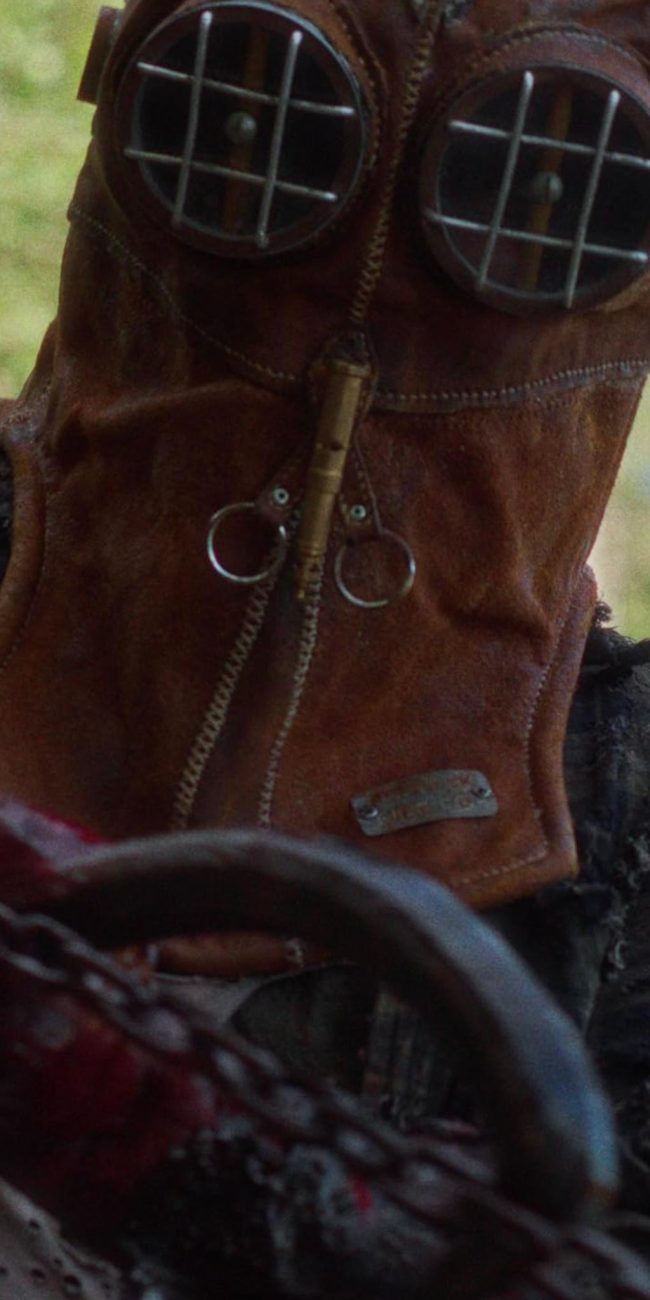SUNDANCE ’13: TULLY’S WRAP-UP
 Since I began attending the Sundance Film Festival back in 2008, my annual post-fest wrap-ups have always been typed with optimistic fingers. But when it comes to the recently concluded 2013 installment, my whole hands are glowing. As far as American narrative cinema goes, this year’s festival might very well be the most impressive lineup I have encountered thus far, so much so that I barely saw any docs or works from outside the States (I know, shame on me). But when you are having a run as good as I was having, it would have been silly to veer off course. So I didn’t.
Since I began attending the Sundance Film Festival back in 2008, my annual post-fest wrap-ups have always been typed with optimistic fingers. But when it comes to the recently concluded 2013 installment, my whole hands are glowing. As far as American narrative cinema goes, this year’s festival might very well be the most impressive lineup I have encountered thus far, so much so that I barely saw any docs or works from outside the States (I know, shame on me). But when you are having a run as good as I was having, it would have been silly to veer off course. So I didn’t.
Obviously, only time will tell if and how things shake out when it comes to the potential for these films to make it out there in the big, scary non-fest universe, but in the context of Park City, Sundance rocked hard this year. More than anything, perhaps, 2013 will likely be registered as the year the NEXT Section fully came into its own (even Mike S. Ryan agrees with me). Expanded to 10 films, this year’s NEXT Section featured a consistently superb lineup of work from names both familiar and new. Unfortunately, I missed out on Newlyweeds and the wildly divisive Escape From Tomorrow, but I managed to see eight of these entries, and in comparison to the select US Dramatic Competition films that I saw, they were just as impressive, if not more so.
There’s a lot to chew on here, so I’ll simply get to it, bestowing my own trophy-less awards as I see fit.
SHORT FILM STANDOUTS (IN ALPHABETICAL ORDER)
(watch several of these selections, as well as past fest entries, right here)
The Apocalypse (Andrew Zuchero, 6m) — A humorous little ditty that I actually read as a rather deep metaphor for humanity and how our stupid brains will ultimately be the primary cause of our seemingly imminent demise.
Black Metal (Kat Candler, 9m) — Kat Candler returns to Sundance again this year with another metal-infused work. But this time, instead of using humor like she did with Hellion, she delivers a straight jolt of drama about a successful metal musician (Jonny Mars) who is coping with the realization that a fan committed a brutal murder in the name of his songs.
Broken Night (Guillermo Arriaga, 9m) — If you think of Broken Night in realistic, plausible terms, it’s a tad farfetched, but if you watch it as if you are tapping into the nightmare of a paranoid parent, it packs quite a wallop.
Catnip: Egress To Oblivion? (Jason Willis, 7m) — Movies with—let alone about—cats are a ready-made recipe for awesomeness. In this case, filmmaker Jason Willis confronts the mysterious concept of catnip and how it seemingly does to cats what LSD does to us humans. It’s hilarious and adorable, but also surprisingly thoughtful.
The Event (Julia Pott, 3m) — Another apocalypse film with a measure of humor, only the striking mix of animation with live-action backdrops and poetic narration (based on a poem by Tom Chivers) gives this one a haunting touch.
Irish Folk Furniture (Tony Donaghue, 9m) — A lovely little live-action stop-motion documentary ode to several folks who preserve Ireland’s past through the act of furniture restoration.
Seraph (Dash Shaw, 7m) — In only seven minutes, this emotionally piercing effort, written by Shaw and John Cameron Mitchell and set to the music of Sigur Ros, confronts the difficult topic of self-identity and how outside forces often keep us from presenting our true selves to the world.
Skin (Jordana Spiro, 13m) — The adolescent son of a taxidermist becomes a budding taxidermist himself in order to impress a girl that he likes. For anyone who has ever done something that seemed like a good idea at the time but proved to have the completely opposite effect, this creepy movie is a painful reminder of those face-covering days.
Social Butterfly (Lauren Wolkstein, 14m) — Lauren Wolkstein’s latest, shot in France and starring Anna Margaret Hollyman, is a provocative, mysterious drama that has me pining for the hopefully soon day when Wolkstein expands her vision to the feature film realm.
Volume (Mahalia Belo, 27m) — In the tradition of The Virgin Suicides comes this stylish mood piece about a teenage boy who pines after the pretty neighbor with whom he formed a friendship before she disappeared one fateful day.
GRAND JURY PRIZE FOR EVERY SINGLE REASON IMAGINABLE
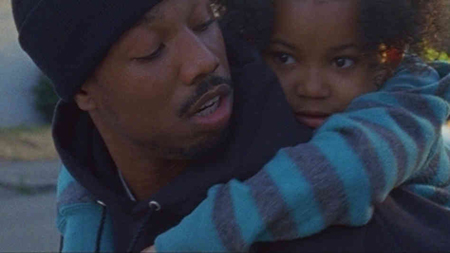 Fruitvale (Ryan Coogler, 90m) — As with last year’s runaway winner Beasts of the Southern Wild, get ready for a select pocket of critical knives to come out when 26-year-old Ryan Coogler’s debut feature makes its way into the world (thanks to a purchase by The Weinstein Company, you can bet your bippy that it will be making a splash when it’s released). Fruitvale is far from “perfect,” but it is nonetheless one of those rare creations whose spirit and soul escapes the trappings of nitpicky, rational criticism. About two-thirds of the way through, tears started pouring down my face and didn’t stop until after the credits had ended. Not to toot my own horn, but I called Monique’s Best Supporting Actress Oscar victory when I saw Precious at the 2009 festival, and while I might not be confident enough to predict a Best Actor win for Michael B. Jordan, I can guarantee you that Jordan will receive a Best Actor nomination. It’s way too early to say for sure, but Fruitvale sure feels like some sort of scrappy landmark achievement.
Fruitvale (Ryan Coogler, 90m) — As with last year’s runaway winner Beasts of the Southern Wild, get ready for a select pocket of critical knives to come out when 26-year-old Ryan Coogler’s debut feature makes its way into the world (thanks to a purchase by The Weinstein Company, you can bet your bippy that it will be making a splash when it’s released). Fruitvale is far from “perfect,” but it is nonetheless one of those rare creations whose spirit and soul escapes the trappings of nitpicky, rational criticism. About two-thirds of the way through, tears started pouring down my face and didn’t stop until after the credits had ended. Not to toot my own horn, but I called Monique’s Best Supporting Actress Oscar victory when I saw Precious at the 2009 festival, and while I might not be confident enough to predict a Best Actor win for Michael B. Jordan, I can guarantee you that Jordan will receive a Best Actor nomination. It’s way too early to say for sure, but Fruitvale sure feels like some sort of scrappy landmark achievement.
HOLY MODERN MASTER
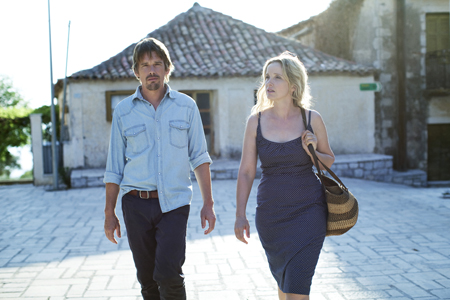 Before Midnight (Richard Linklater, 108m) — Could they do it again? Could Richard Linklater and Ethan Hawke and Julie Delpy make it three-for-three in the ongoing saga of Jesse and Celine that began with Before Sunrise in 1995 and continued with Before Sunset in 2004? That answer is an emphatic punch in the gut of yes. The beauty of this particular chapter—will it be the last?—is that as soon as we see Jesse and Celine in the frame together, being their typically verbose selves, all hopes and expectations and predictions are erased. To say too much more would spoil the painful honesty on display. After just one viewing, the most restrained thing I can say about Before Midnight is that it is a bona fide master lesson in how to explore crushingly personal issues while simultaneously upholding the tradition of cinematic fiction. For anyone out there intent on excavating their own lives for source material, take note. This is how it’s done.
Before Midnight (Richard Linklater, 108m) — Could they do it again? Could Richard Linklater and Ethan Hawke and Julie Delpy make it three-for-three in the ongoing saga of Jesse and Celine that began with Before Sunrise in 1995 and continued with Before Sunset in 2004? That answer is an emphatic punch in the gut of yes. The beauty of this particular chapter—will it be the last?—is that as soon as we see Jesse and Celine in the frame together, being their typically verbose selves, all hopes and expectations and predictions are erased. To say too much more would spoil the painful honesty on display. After just one viewing, the most restrained thing I can say about Before Midnight is that it is a bona fide master lesson in how to explore crushingly personal issues while simultaneously upholding the tradition of cinematic fiction. For anyone out there intent on excavating their own lives for source material, take note. This is how it’s done.
HOLY BUDDING MODERN MASTER
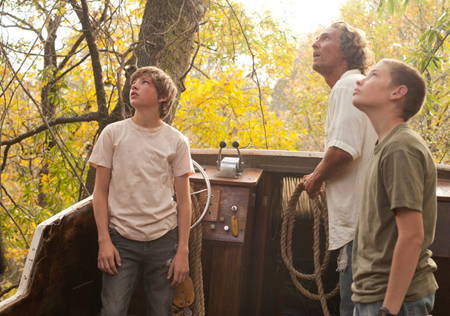 Mud (Jeff Nichols, 130m) — If Jeff Nichols keeps this up, he’ll be deserving of a Lifetime Achievement Oscar at 40 and will have nowhere to go but downhill. Slow down, son! For those critics who appeared to be underwhelmed by Mud at Cannes, I hope I never eat one of the croissants you ate for breakfast that morning. While Nichols takes a wide approach in telling the story of two young boys who befriend an escaped convict (a totally awesome Matthew McConaughey) who dreams of reuniting with his true love (Reese Witherspoon), it’s obvious that Nichols is tapping into Southern literature as much as he is classic Hollywood cinema. For that reason alone, these 130 minutes are earned. Mud is old-fashioned entertainment at its finest, featuring startling cinematography by Adam Stone.
Mud (Jeff Nichols, 130m) — If Jeff Nichols keeps this up, he’ll be deserving of a Lifetime Achievement Oscar at 40 and will have nowhere to go but downhill. Slow down, son! For those critics who appeared to be underwhelmed by Mud at Cannes, I hope I never eat one of the croissants you ate for breakfast that morning. While Nichols takes a wide approach in telling the story of two young boys who befriend an escaped convict (a totally awesome Matthew McConaughey) who dreams of reuniting with his true love (Reese Witherspoon), it’s obvious that Nichols is tapping into Southern literature as much as he is classic Hollywood cinema. For that reason alone, these 130 minutes are earned. Mud is old-fashioned entertainment at its finest, featuring startling cinematography by Adam Stone.
VISIONARY AWARD
 Computer Chess (Andrew Bujalski, 91m) — Oh boy. Oh gee. Oh boy-gee! Every year, I pray that I might come into contact with even one film such as this, an exhilarating, head-spinning act of gleeful personal expression that could not have been birthed from anyone else’s warped brain. Perhaps there are more gems like this to come in 2013, but even if I make it to January 31st and Andrew Bujalski’s Computer Chess remains the only truly visionary film I saw this year, that’s just fine by me. More than just a hilarious ode to the big-gadget technology of yesteryear, Computer Chess is a deceptively impressive work of aesthetic and technical virtuosity. Even better, underneath those gaudy clothes and that crusty black-and-white video imagery, it has some very timely things to say about how we interact with one another in our small-gadget, ultra-hyper-connected present-second 21st century world.
Computer Chess (Andrew Bujalski, 91m) — Oh boy. Oh gee. Oh boy-gee! Every year, I pray that I might come into contact with even one film such as this, an exhilarating, head-spinning act of gleeful personal expression that could not have been birthed from anyone else’s warped brain. Perhaps there are more gems like this to come in 2013, but even if I make it to January 31st and Andrew Bujalski’s Computer Chess remains the only truly visionary film I saw this year, that’s just fine by me. More than just a hilarious ode to the big-gadget technology of yesteryear, Computer Chess is a deceptively impressive work of aesthetic and technical virtuosity. Even better, underneath those gaudy clothes and that crusty black-and-white video imagery, it has some very timely things to say about how we interact with one another in our small-gadget, ultra-hyper-connected present-second 21st century world.
BEST PSEUDO-HISTORICAL ARTIFACT
 No (Pablo Larrain, 110m) — As with Tony Manero and Post Mortem, Larrain employs a radically distinct style for the final installment in his totally awesome “Chile under Pinochet” trilogy. This time, he focuses on the end of that dictatorial era, when a group of upstarts rise to the occasion in 1988 and turn a sham of a Presidential campaign into a history-making event. If it weren’t for the familiar faces of Gael Garcia Bernal and Larrain regular Alfredo Castro, this camcorder-shot docudramedy might pass as an actual artifact from the time in which it is set. No kicks serious ass.
No (Pablo Larrain, 110m) — As with Tony Manero and Post Mortem, Larrain employs a radically distinct style for the final installment in his totally awesome “Chile under Pinochet” trilogy. This time, he focuses on the end of that dictatorial era, when a group of upstarts rise to the occasion in 1988 and turn a sham of a Presidential campaign into a history-making event. If it weren’t for the familiar faces of Gael Garcia Bernal and Larrain regular Alfredo Castro, this camcorder-shot docudramedy might pass as an actual artifact from the time in which it is set. No kicks serious ass.
BEST DIRECTORIAL ONE-TWO PUNCH
Sebastian Silva
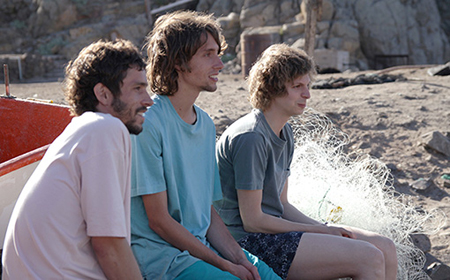 Teaming up with Michael Cera for not one but two Sundance entries, Silva confirms his status as one of cinema’s most versatile and invigorating new voices. In opening night entry Crystal Fairy—full, better title: Crystal Fairy & The Magic Cactus & 2012—Cera absolutely drills the role of Jaime, an over-exuberant American in a foreign land whose gleeful embracing of every substance imaginable makes him borderline insufferable. But it is Gaby Hoffmann who ultimately steals the picture. Her portrayal of the titular character is a marvel. At first, we/Jaime think that Crystal Fairy is just another annoying, spaced out, clueless hippie, but during the film’s climax, her true humanity is revealed. It’s refreshing to confront a male-directed film that seems like it’s heading in a typically chauvinistic direction but turns out to be quite the extreme opposite.
Teaming up with Michael Cera for not one but two Sundance entries, Silva confirms his status as one of cinema’s most versatile and invigorating new voices. In opening night entry Crystal Fairy—full, better title: Crystal Fairy & The Magic Cactus & 2012—Cera absolutely drills the role of Jaime, an over-exuberant American in a foreign land whose gleeful embracing of every substance imaginable makes him borderline insufferable. But it is Gaby Hoffmann who ultimately steals the picture. Her portrayal of the titular character is a marvel. At first, we/Jaime think that Crystal Fairy is just another annoying, spaced out, clueless hippie, but during the film’s climax, her true humanity is revealed. It’s refreshing to confront a male-directed film that seems like it’s heading in a typically chauvinistic direction but turns out to be quite the extreme opposite.
 Silva’s second entry, the Park City at Midnight selection Magic Magic, features another outrageous-yet-somehow-still-grounded performance from Cera (who confessed to biting Rivers Edge-era Crispin Glover in the post-film Q&A), as well as another strong female characterization. Juno Temple plays an out-of-her element foreigner in Chile who might be under possession by some ghostly forces, or who might instead simply be losing her mind. In contrast to the improvisational, low-budget, ultra-scrappy vibe of Crystal Fairy, Magic Magic has a controlled formalism—cinematography by Christopher Doyle and Glenn Kaplan—that firmly places it in the psychological horror shelf in the video store.
Silva’s second entry, the Park City at Midnight selection Magic Magic, features another outrageous-yet-somehow-still-grounded performance from Cera (who confessed to biting Rivers Edge-era Crispin Glover in the post-film Q&A), as well as another strong female characterization. Juno Temple plays an out-of-her element foreigner in Chile who might be under possession by some ghostly forces, or who might instead simply be losing her mind. In contrast to the improvisational, low-budget, ultra-scrappy vibe of Crystal Fairy, Magic Magic has a controlled formalism—cinematography by Christopher Doyle and Glenn Kaplan—that firmly places it in the psychological horror shelf in the video store.
BEST CINEMATOGRAPHIC ONE-TWO PUNCH
Bradford Young
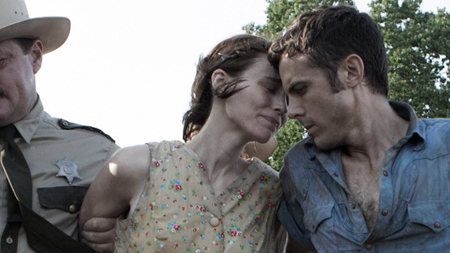 Young’s work on David Lowery’s pristine crime romance Ain’t Them Bodies Saints and Andrew Dosonmu’s sobering fable Mother of George has without question vaulted him to the upper ranks of American cinematographers. Working with Lowery, Young slowly moves the camera at seemingly every moment to establish a rising air of restrained tension; while with Dosonmu, he favors reflections and foreground obstructions to add to the sense of character isolation. For such a young DP, Young shows a control and understanding of the medium that is breathtakingly assured.
Young’s work on David Lowery’s pristine crime romance Ain’t Them Bodies Saints and Andrew Dosonmu’s sobering fable Mother of George has without question vaulted him to the upper ranks of American cinematographers. Working with Lowery, Young slowly moves the camera at seemingly every moment to establish a rising air of restrained tension; while with Dosonmu, he favors reflections and foreground obstructions to add to the sense of character isolation. For such a young DP, Young shows a control and understanding of the medium that is breathtakingly assured.
MOST HONEST DEPICTION OF ALCOHOLISM (FOR THE SECOND YEAR IN A ROW)
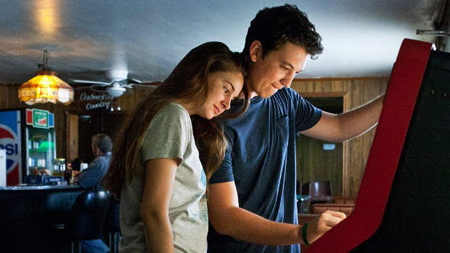 The Spectacular Now (James Ponsoldt, 99m) — After last year’s Smashed, which took a refreshingly honest approach to an otherwise familiar story of alcoholism acceptance and subsequent recovery, Ponsoldt tells another booze-soaked tale that is simultaneously frank and sweet. Ponsoldt has a rare knack for eliciting effortlessly natural performances from his actors—in this case, the young Miles Teller and Shailene Woodley are remarkably good—resulting in a movie that seems ‘young adult’ on the surface, but actually resonates much more deeply than that. Go ahead and make it an alcholism trilogy, Mr. Ponsoldt!
The Spectacular Now (James Ponsoldt, 99m) — After last year’s Smashed, which took a refreshingly honest approach to an otherwise familiar story of alcoholism acceptance and subsequent recovery, Ponsoldt tells another booze-soaked tale that is simultaneously frank and sweet. Ponsoldt has a rare knack for eliciting effortlessly natural performances from his actors—in this case, the young Miles Teller and Shailene Woodley are remarkably good—resulting in a movie that seems ‘young adult’ on the surface, but actually resonates much more deeply than that. Go ahead and make it an alcholism trilogy, Mr. Ponsoldt!
BEST DOCUMENTARY
 After Tiller (Martha Shane and Lana Wilson, 85m) — Truth be told, After Tiller was the only documentary I managed to see in Park City (Kim Longinotto’s Salma remains my number one regret of the fest), but I don’t feel insecure in bestowing it with this honor, since so many doc-focused attendees felt the same way. In what is for all intents and purposes the most flaming, impossible topic that one can choose to make a documentary about—late-term abortion—Shane and Wilson take as thoughtful, measured, and humane an approach as possible. Likely, this movie won’t change the minds of pro-birthers, but it should.
After Tiller (Martha Shane and Lana Wilson, 85m) — Truth be told, After Tiller was the only documentary I managed to see in Park City (Kim Longinotto’s Salma remains my number one regret of the fest), but I don’t feel insecure in bestowing it with this honor, since so many doc-focused attendees felt the same way. In what is for all intents and purposes the most flaming, impossible topic that one can choose to make a documentary about—late-term abortion—Shane and Wilson take as thoughtful, measured, and humane an approach as possible. Likely, this movie won’t change the minds of pro-birthers, but it should.
THE BAY RIDGE NEW WAVE IS BORN?
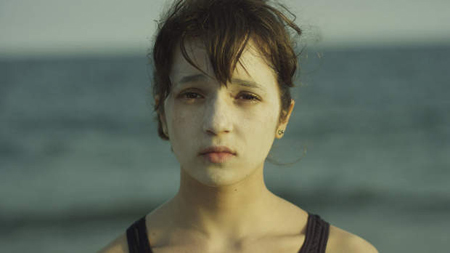 It Felt Like Love (Eliza Hittman, 90m) — Fish Tank meets Raising Victor Vargas meets Kids in this startlingly assured feature debut from Hittman, which has a voice all its own thanks to its being set in a part of Brooklyn that we rarely see on the big screen. Newcomer Gina Piersanti has the expressive face of a silent film star, which Hittman uses to her advantage, as she tells the tale of a confused young motherless teenager who finds herself being swallowed up by the macho pressures of her environment. One-man camera crew Sean Porter brings a soft, sensual touch to his photography that heightens the summer tension, and Hittman’s absolutely bumping hip-hop soundtrack ups the ante even further. This movie is dope.
It Felt Like Love (Eliza Hittman, 90m) — Fish Tank meets Raising Victor Vargas meets Kids in this startlingly assured feature debut from Hittman, which has a voice all its own thanks to its being set in a part of Brooklyn that we rarely see on the big screen. Newcomer Gina Piersanti has the expressive face of a silent film star, which Hittman uses to her advantage, as she tells the tale of a confused young motherless teenager who finds herself being swallowed up by the macho pressures of her environment. One-man camera crew Sean Porter brings a soft, sensual touch to his photography that heightens the summer tension, and Hittman’s absolutely bumping hip-hop soundtrack ups the ante even further. This movie is dope.
BEST CLOSING CREDITS
 I Used To Be Darker (Matthew Porterfield, 84m) — Porterfield’s follow-up to his acclaimed Putty Hill finds the Baltimore-based director telling a more formally straightforward tale. Working from a screenplay co-written by Amy Belk, Porterfield first introduces us to Taryn (Deragh Campbell), a Northern Irish 19-year-old who has been living in Ocean City, Maryland for the summer. But when she becomes pregnant, she flees to Baltimore to connect with her aunt Kim (Kim Taylor), uncle Bill (Ned Oldham), and cousin Abby (Hannah Gross). The only problem is that Kim and Bill are currently divorcing, to the frustration and fury of their daughter. A patient drama, I Used To Be Darker is most notable for its master class utilization of music—specifically, how to weave diegetic songs into a film’s emotional atmosphere.
I Used To Be Darker (Matthew Porterfield, 84m) — Porterfield’s follow-up to his acclaimed Putty Hill finds the Baltimore-based director telling a more formally straightforward tale. Working from a screenplay co-written by Amy Belk, Porterfield first introduces us to Taryn (Deragh Campbell), a Northern Irish 19-year-old who has been living in Ocean City, Maryland for the summer. But when she becomes pregnant, she flees to Baltimore to connect with her aunt Kim (Kim Taylor), uncle Bill (Ned Oldham), and cousin Abby (Hannah Gross). The only problem is that Kim and Bill are currently divorcing, to the frustration and fury of their daughter. A patient drama, I Used To Be Darker is most notable for its master class utilization of music—specifically, how to weave diegetic songs into a film’s emotional atmosphere.
BIGGEST LEAP FORWARD
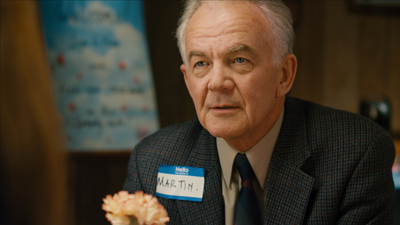 This Is Martin Bonner (Chad Hartigan, 83m) — Chad Hartigan’s 2008 debut, Luke and Brie Are On A First Date, was a humble little micro-budget affair about a budding romance between young 20-somethings in Los Angeles. Watching This Is Martin Bonner, you’d be forgiven for not believing the same person made these two films. While the budget for This Is Martin Bonner was similarly small, it sure doesn’t feel like it. Lushly photographed by Sean McElwee and gorgeously scored by Keegan Dewitt (read a breakdown of that score here), Hartigan’s note perfect drama about late life new beginnings features memorably honest performances from Paul Eenhoorn and Richmond Arquette. I would be surprised if there is even one festival programmer out there who doesn’t invite Hartigan’s film to screen at their fest.
This Is Martin Bonner (Chad Hartigan, 83m) — Chad Hartigan’s 2008 debut, Luke and Brie Are On A First Date, was a humble little micro-budget affair about a budding romance between young 20-somethings in Los Angeles. Watching This Is Martin Bonner, you’d be forgiven for not believing the same person made these two films. While the budget for This Is Martin Bonner was similarly small, it sure doesn’t feel like it. Lushly photographed by Sean McElwee and gorgeously scored by Keegan Dewitt (read a breakdown of that score here), Hartigan’s note perfect drama about late life new beginnings features memorably honest performances from Paul Eenhoorn and Richmond Arquette. I would be surprised if there is even one festival programmer out there who doesn’t invite Hartigan’s film to screen at their fest.
BREAKOUT PERFORMANCE
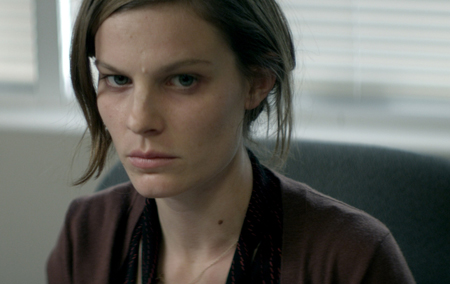 A Teacher (Hannah Fidell, 75m) — Fidell’s debut features an exceptional performance from Lindsay Burge. In this role, Burge’s looks make her character initially harder to believe—a high school teacher this pretty has to settle for dating a horny student? really?—but Burge’s commitment to her role becomes immediately clear, and her ability to convince us makes it all the more impressive. Fidell and Burge take a sensationalistic premise and turn it into something credible and affecting.
A Teacher (Hannah Fidell, 75m) — Fidell’s debut features an exceptional performance from Lindsay Burge. In this role, Burge’s looks make her character initially harder to believe—a high school teacher this pretty has to settle for dating a horny student? really?—but Burge’s commitment to her role becomes immediately clear, and her ability to convince us makes it all the more impressive. Fidell and Burge take a sensationalistic premise and turn it into something credible and affecting.
FUNNIEST MOVIE
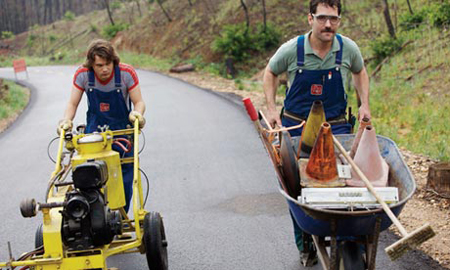 Prince Avalanche (David Gordon Green, 94m) — My credit in this film (see it for yourself to find out what that credit is) means that I can’t say too much for fear of being dismissed as nepotistic, but the reality is that Prince Avalanche might very well be the most complete expression of David Gordon Green’s unique sense of humor yet. Combine that with an expansively dreamy soundtrack by David Wingo and Explosions in the Sky, as well as an eventual turn into heartfelt drama as Paul Rudd and Emile Hirsch’s otherwise goofy characters contemplate fatherhood, and you have a sweet little treat from Green. This feels like one of those movies that rewards upon subsequent viewings.
Prince Avalanche (David Gordon Green, 94m) — My credit in this film (see it for yourself to find out what that credit is) means that I can’t say too much for fear of being dismissed as nepotistic, but the reality is that Prince Avalanche might very well be the most complete expression of David Gordon Green’s unique sense of humor yet. Combine that with an expansively dreamy soundtrack by David Wingo and Explosions in the Sky, as well as an eventual turn into heartfelt drama as Paul Rudd and Emile Hirsch’s otherwise goofy characters contemplate fatherhood, and you have a sweet little treat from Green. This feels like one of those movies that rewards upon subsequent viewings.
OH THE HUMANITY
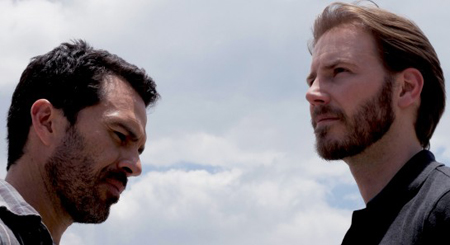 Pit Stop (Yen Tan, 80m) — (Note: While I’m not going to rework or update this capsule, I did want to acknowledge that an email from a filmmaker friend has reminded me that the “it doesn’t actually play like a gay movie!” tag feels like some sort of uncool backhanded compliment. I guess the point I’m trying to make here is that Yen Tan creates worlds where those labels don’t matter and that’s what makes his films so special. From here on out, I promise to do my best not to play those unfairly limiting games!) It’s nice to see the multi-talented Tan be recognized on a larger platform. As with his previous feature Ciao, Tan proves that he has a special knack for telling stories involving gay characters that don’t play like ‘gay movies.’ Pit Stop is about real people dealing with real emotions, whatever their sexual preference. This is a quiet, unflashy movie, but that’s the point.
Pit Stop (Yen Tan, 80m) — (Note: While I’m not going to rework or update this capsule, I did want to acknowledge that an email from a filmmaker friend has reminded me that the “it doesn’t actually play like a gay movie!” tag feels like some sort of uncool backhanded compliment. I guess the point I’m trying to make here is that Yen Tan creates worlds where those labels don’t matter and that’s what makes his films so special. From here on out, I promise to do my best not to play those unfairly limiting games!) It’s nice to see the multi-talented Tan be recognized on a larger platform. As with his previous feature Ciao, Tan proves that he has a special knack for telling stories involving gay characters that don’t play like ‘gay movies.’ Pit Stop is about real people dealing with real emotions, whatever their sexual preference. This is a quiet, unflashy movie, but that’s the point.
MOST DISTURBING COMMENTARY ON OUR SELF-CENTERED SELVES
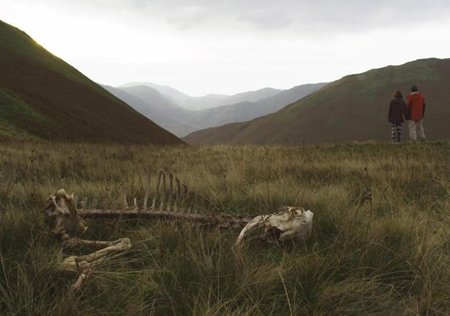 Sightseers (Ben Wheatley, 98m) — After the genre-molesting Kill List, what road would Ben Wheatley decide to take? This time, Wheatley drives a camper through the English countryside, as a disturbed couple embarks on a killing spree for hilariously and horrifically selfish reasons. Sightseers is like Nuts in May meets God Bless America—in a good way.
Sightseers (Ben Wheatley, 98m) — After the genre-molesting Kill List, what road would Ben Wheatley decide to take? This time, Wheatley drives a camper through the English countryside, as a disturbed couple embarks on a killing spree for hilariously and horrifically selfish reasons. Sightseers is like Nuts in May meets God Bless America—in a good way.
— Michael Tully








